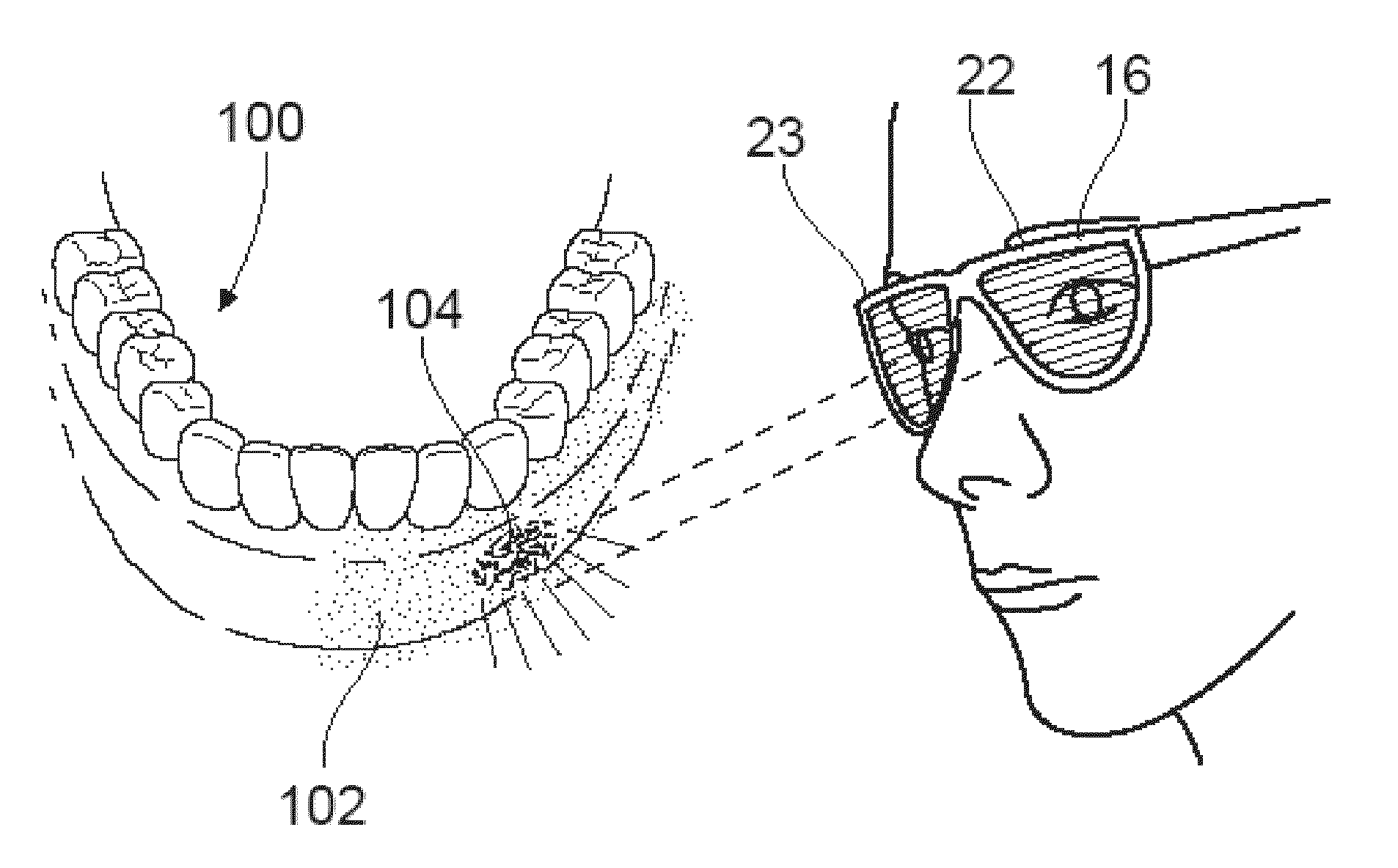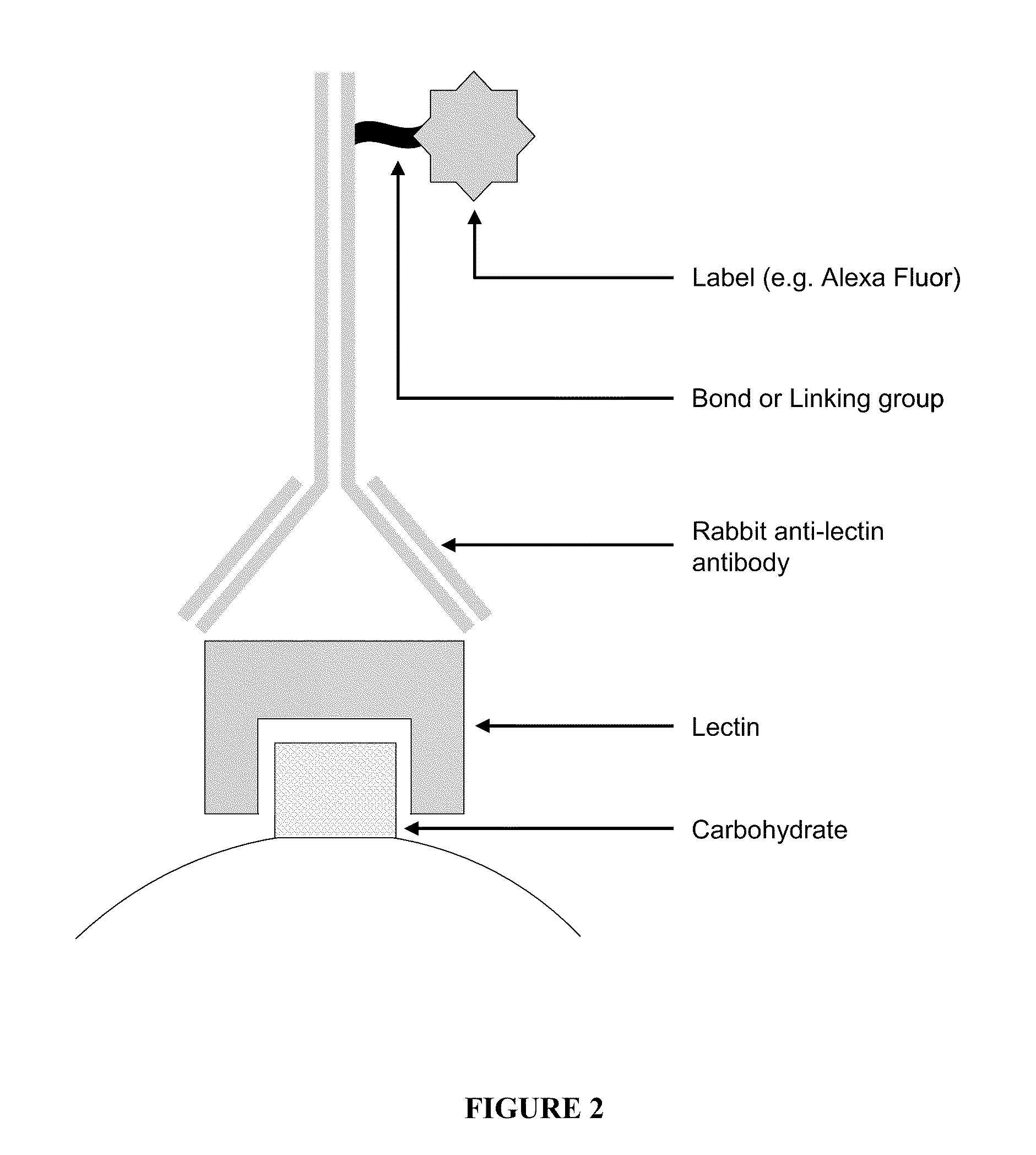Compositions and methods for detecting oral neoplasm
a technology for oral cancer and compositions, applied in the field of compositions and methods for detecting oral cancer, can solve the problems of difficult to associate the binding of a particular lectin with a specific disease, difficult to understand, and the area of study has received little attention from most cell biologists involved in cancer research, so as to achieve the effect of simplifying and cost-effective oral cancer detection
- Summary
- Abstract
- Description
- Claims
- Application Information
AI Technical Summary
Benefits of technology
Problems solved by technology
Method used
Image
Examples
example
Using Lectin-Fluorophore Probes to Differentiate Normal and Neoplastic Mucosal Tissues
[0137]The inventors here report the results of clinical studies using the methods of the present invention. Specifically, the inventors have collected data from fluorescence imaging of oral mucosa tissue specimens from 11 patients. Fluorescence imaging was performed (1) using conventional tissue autofluorescence, and (2) after applying lectin-fluorophore conjugates to the surface of the tissue. Fluorophore conjugates were used containing the lectins PNA, WGA, and GS-II. Data collected from 9 of the 11 patients demonstrate that aberrant glycosylation changes can be pinpointed via fluorescent lectin conjugates, resulting in high resolution imaging of normal and cancerous tissue in the oral mucosa. Furthermore, these glycosyl changes can differentiate normal, dysplastic, and malignant tissues in the oral cavity with high contrast. This technique holds promise as a non-invasive screening method for pre...
PUM
| Property | Measurement | Unit |
|---|---|---|
| wavelengths | aaaaa | aaaaa |
| wavelengths | aaaaa | aaaaa |
| wavelengths | aaaaa | aaaaa |
Abstract
Description
Claims
Application Information
 Login to View More
Login to View More - R&D
- Intellectual Property
- Life Sciences
- Materials
- Tech Scout
- Unparalleled Data Quality
- Higher Quality Content
- 60% Fewer Hallucinations
Browse by: Latest US Patents, China's latest patents, Technical Efficacy Thesaurus, Application Domain, Technology Topic, Popular Technical Reports.
© 2025 PatSnap. All rights reserved.Legal|Privacy policy|Modern Slavery Act Transparency Statement|Sitemap|About US| Contact US: help@patsnap.com



